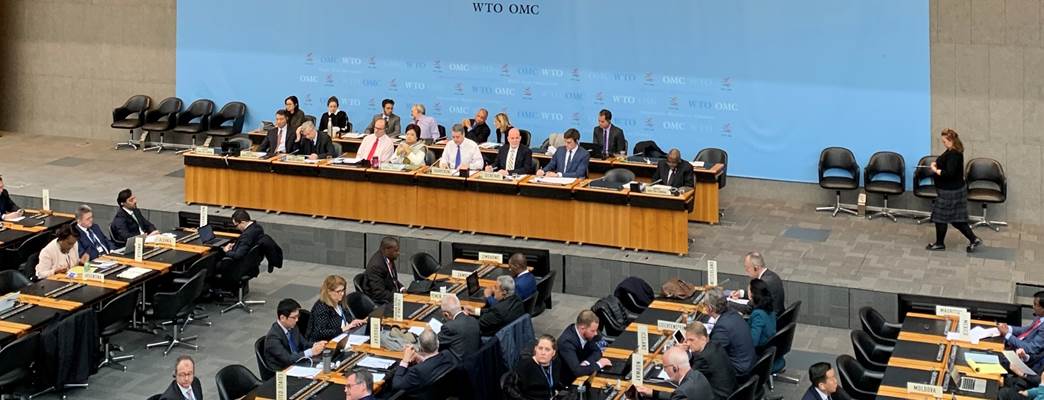Thank you DG for your report, and thanks to the chairs of the negotiating groups for their updates.
Ninety-eight days. That is what is available to us until Ministers gather in Nur-Sultan. Luckily, most of them are working days. We will need all of them.
Today, I will devote my allotted time to fisheries subsidies - the most urgent negotiations in the lead up to MC12. We have been instructed to fix it and should have done so already.
Many have pointed to the importance of the fisheries subsidies negotiations for the credibility of the WTO. But the organization cannot negotiate any deal. Only the Members can do that. The responsibility rests with us.
I would like to congratulate the Chair of the negotiating group for having initiated an intensified process.
Furthermore, the Chair has focused our attention on subsidies that contribute to overcapacity and overfishing. This is the most important part of the mandate. On this point, we still have a way to go.
The goal line is in sight. It is time to start talking about what a possible solution may look like.
First of all: The solution has to be meaningful. It must pass “the red face test”.
A solution, which does not reduce the total amount of global subsidies, will not pass the test.
A solution, which allows major subsidizers to continue as before, will not pass the test. A solution, which does not include clearly operationalized instructions to “eliminate” and to “prohibit”, will not pass the test.
Secondly: The solution has to be balanced. Without balance, no agreement.
This is obvious. The million-dollar question is how we find that balance.
Agreements are made on the basis of trade-offs. In this case, there are no trade-offs available between fisheries subsidies and other areas of negotiations. Nor should we look for such linkages. It would be a recipe for failure.
Finding trade-offs within the fisheries subsidies file is no easy task either. The primary beneficiaries of an agreement on fisheries subsidies are future generations. Future generations are unfortunately not represented at the negotiating table in the same way as those who worry about losing income due to reform of existing subsidy schemes.
When concessions in one area cannot easily be balanced by gains in another, how can you explain concessions made? The only way out is that everybody ends up contributing something. Then one party can defend its concessions by pointing out that the others are contributing too. If we cannot balance contributions with gain, we have to balance the contributions. Not in a numerical way, but politically.
It is time to realize that any proposal that foresees a major contribution from the others, while leaving some completely off the hook, will never achieve consensus. Major subsidizers should show leadership and visibly cut subsidies, immediately or over a certain period. We will all have to contribute. Norway is ready to do its part.
Those who do not subsidize today but wish to subsidize in the future, will have to accept limitations to their policy space. Furthermore, we will all have to accept that our fisheries subsidies will be reviewed by our peers.
DG,
We have shifted gear. We are in continuous negotiations. This is indeed welcome. Now is the time to change our positions as well. If we continue to repeat old proposals and old talking points, we will not get anywhere. Not in Nur-Sultan. Not anytime. It is time to leave “my way” behind and start looking for “our way”. Ninety-eight days - and counting.
Thank you
